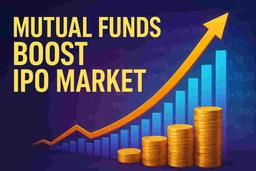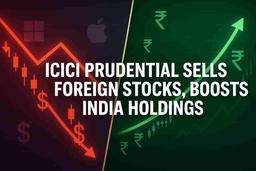Motilal Oswal Financial Services has named Ashok Leyland and Jindal Stainless as its top stock picks for the week starting November 17, 2025. Ashok Leyland is recommended with a target price of Rs 165, projecting an 11% upside, driven by strong PAT, improved EBITDA margins, and export growth. Jindal Stainless is favored with a target of Rs 870, offering an 18% upside, due to its operational strengths, diversification, and focus on value-added products amidst rising stainless steel demand.
Motilal Oswal Financial Services has identified Ashok Leyland and Jindal Stainless as its preferred stock picks for the upcoming week, offering investors clear targets and potential upside.
Ashok Leyland is recommended with a target price of Rs 165, representing an 11% potential increase from its current price. The company's second quarter of fiscal year 2025 (2QFY25) reported a Profit After Tax (PAT) of INR 8 billion, which was 8% higher than analyst estimates. This performance was attributed to an improved product mix and disciplined pricing. The Earnings Before Interest, Taxes, Depreciation, and Amortization (EBITDA) margin expanded by 50 basis points year-on-year to 12%, supported by robust growth in the non-truck segments and effective cost control measures. New product launches across Medium & Heavy Commercial Vehicles (MHCV), Light Commercial Vehicles (LCV), and bus segments, alongside double-digit growth in defence, spares, and power solutions, are significantly improving the product mix. Exports saw a substantial 45% year-on-year increase, with management aiming for a 20% Compound Annual Growth Rate (CAGR) over the next two to three years. The demand for LCVs is showing signs of recovery, and the MHCV segment is expected to follow suit, driven by improving consumption trends and tailwinds from Goods and Services Tax (GST) policies.
Jindal Stainless (JSL) is highlighted as one of India's most agile and future-ready stainless-steel producers. Its strong positioning is built on operational excellence, strategic diversification, and ongoing capacity expansion. The company's focus on high-value products like rebar, wire rods, and cold-rolled steel enhances its competitiveness across critical sectors such as infrastructure, transport, and consumer goods. With stainless steel demand on the rise and the increasing substitution of carbon steel, JSL is well-positioned to capitalize on significant structural growth opportunities. Furthermore, JSL's commitment to sustainability is evident with renewable energy contributing 42% to its mix, and a green hydrogen plant under development at Jajpur aimed at enhancing cost efficiency. Strategic capital expenditure in Maharashtra and Indonesia is expanding growth visibility while maintaining a disciplined balance sheet. Integration through captive mining, a growing portfolio of value-added products, and digital efficiency improvements further bolster its competitive edge. As regulatory frameworks such as the Quality Control Order (QCO) and Carbon Border Adjustment Mechanism (CBAM) become clearer, JSL is poised to leverage its compliance advantages and scale as a globally competitive player focused on efficiency, resilience, and value creation.
Impact
This news is highly relevant for investors looking for specific stock opportunities. It directly impacts the investment outlook for Ashok Leyland and Jindal Stainless, potentially driving their stock prices. It also provides insights for the broader automotive and metals/mining sectors in India, influencing investor sentiment and trading activity. Rating: 8/10.
Difficult Terms
PAT (Profit After Tax): The profit a company has left after deducting all expenses and taxes.
EBITDA (Earnings Before Interest, Taxes, Depreciation, and Amortization): A measure of a company's operating performance before accounting for interest, taxes, depreciation, and amortization.
MHCV (Medium and Heavy Commercial Vehicles): Large trucks and buses used for transporting goods and passengers.
LCV (Light Commercial Vehicles): Smaller trucks and vans used for commercial purposes.
CAGR (Compound Annual Growth Rate): The average annual growth rate of an investment over a specified period, assuming profits are reinvested.
QCO (Quality Control Order): A government directive mandating that certain products meet specific quality standards before being sold.
CBAM (Carbon Border Adjustment Mechanism): A tax on imports based on the carbon emissions of their production, designed to prevent carbon leakage and level the playing field for domestic industries.


